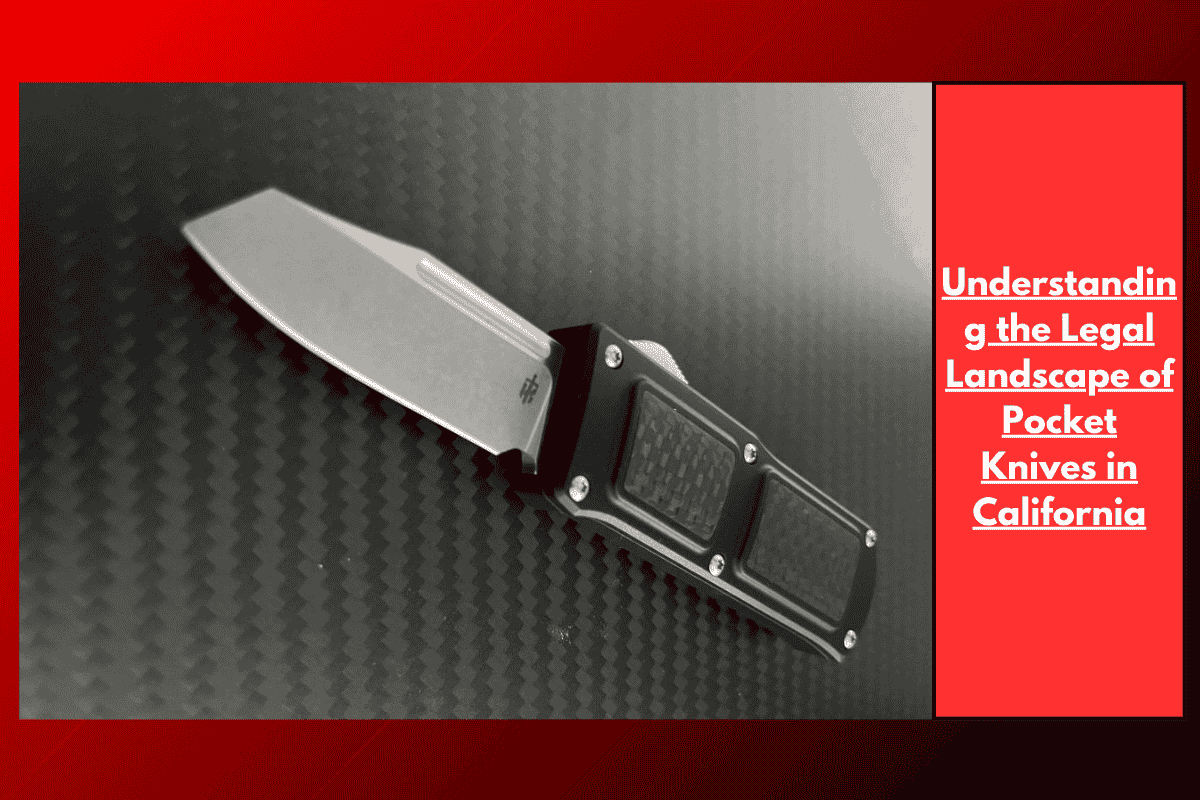California has strict laws when it comes to weapons, including pocket knives. Whether you’re a resident or a visitor, it’s crucial to understand the regulations surrounding carrying and using pocket knives to avoid potential legal trouble. Here’s an overview of the laws regarding pocket knives in California and what you need to know to stay compliant.
Types of Pocket Knives in California
Pocket knives come in various forms, and not all are treated the same under California law. The classification of a pocket knife largely depends on its design, blade length, and how it opens. There are a few key types to be aware of:
Folding Pocket Knives: These are the most common and generally legal to carry in California, as long as the blade does not exceed a certain length and the knife is not classified as a prohibited weapon.
Switchblade Knives: These knives, which automatically open when a button or mechanism is pressed, are highly regulated in California. Possession of switchblades with blades longer than 2 inches is illegal under both state and federal law.
Bowie Knives and Fixed-Blade Knives: While not typical pocket knives, large fixed-blade knives like bowie knives may be restricted in public, depending on local ordinances and the knife’s intended use.
Carrying Pocket Knives in California
In California, the laws around carrying a pocket knife depend on several factors:
Concealed vs. Open Carry:
Concealed Carry: It’s illegal to carry a pocket knife concealed on your person unless you have a valid reason, such as using it for work or as part of a hobby like fishing or camping. A knife concealed in your bag or pocket may violate California Penal Code 21310, which makes it illegal to carry a concealed dirk or dagger (a knife with a blade longer than 2 inches).
Open Carry: You can openly carry a pocket knife in most situations, but there are restrictions on certain public areas like schools, government buildings, and airports.
Blade Length:
General Rule: In most cases, pocket knives with blades shorter than 2.5 inches are legal to carry and use in public.
Longer Blades: Carrying knives with longer blades (typically 3.5 inches or more) may be subject to more stringent laws and may require a specific purpose for carrying them, such as a tool for work or recreation.
Public Places:
Schools and School Zones: It is illegal to possess any knife (including pocket knives) on school property or within a 1,000-foot radius of school grounds. This includes public schools, private schools, and universities.
Local Regulations: Cities and counties may have their own rules about carrying knives, so it’s important to be aware of local ordinances. For example, some areas prohibit knives in certain parks, beaches, or government buildings.
Legal Exceptions and Allowances
While California’s knife laws can be strict, there are some legal exceptions where you can carry and use a pocket knife:
For Hunting, Fishing, or Camping: If you’re using the knife for a legitimate activity like hunting, fishing, or camping, you may be allowed to carry a larger pocket knife or even a fixed-blade knife. However, this depends on the context and local regulations.
Tools for Work: If you use a pocket knife as a tool for your job (e.g., for construction, landscaping, or other manual work), carrying one may be permissible. However, it’s essential to show a valid reason if questioned by law enforcement.
Possession in the Home: It’s generally legal to own and possess a pocket knife in your home, even if the knife exceeds certain blade lengths, as long as it is not intended for illegal use.
Penalties for Illegal Possession
If you are found in possession of a pocket knife that violates California’s laws, you could face serious penalties. Penalties can include:
Misdemeanor Charges: Carrying a concealed pocket knife or a prohibited type of knife could lead to a misdemeanor charge, which may result in up to 6 months in county jail and/or a fine of up to $1,000.
Felony Charges: If the knife is used in the commission of a crime or if you are convicted of a more serious violation, you could face felony charges, which carry stiffer penalties, including longer jail sentences and higher fines.
Understanding the legal landscape surrounding pocket knives in California is essential to avoid fines, penalties, or worse. While pocket knives are generally legal to carry, there are specific rules regarding blade length, concealed carry, and where they can be carried. If you’re unsure about the legality of a specific knife, it’s always best to consult with a legal professional or local law enforcement to ensure you are in compliance with California’s laws. Stay informed about local ordinances, and always carry knives responsibly and for lawful purposes.
SOURCE
[1] https://thewrangler.com/understanding-the-legal-landscape-of-pocket-knives-in-california/2025/07/04/
[2] https://www.shouselaw.com/ca/defense/knife-laws/
[3] https://tkellknives.com/is-it-legal-to-carry-a-knife-in-california-know-the-law/
[4] https://www.thebulldog.law/blog/2024/04/knife-laws-in-california-what-you-can-and-cant-carry
[5] https://lnlegal.com/violent-crimes/faq-california-s-knife-laws/














